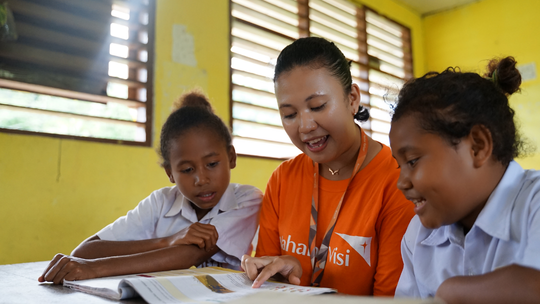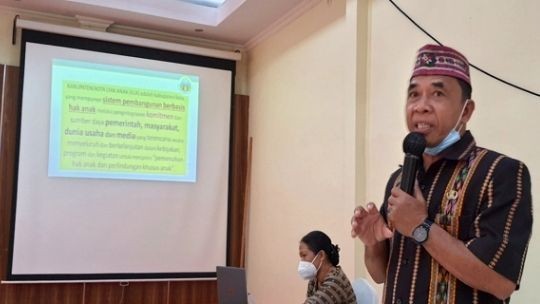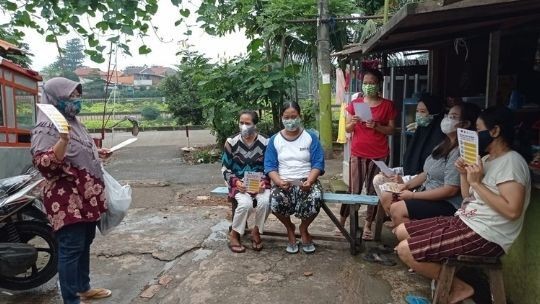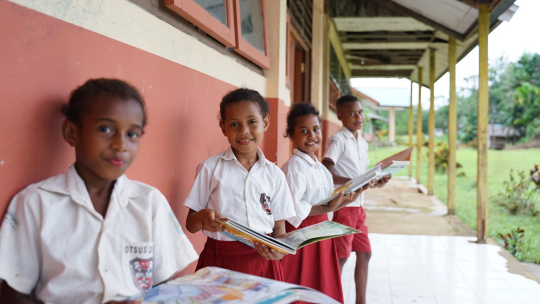Solving Child Mental Health Problems with Donations: Here's the Method

Imagine a child sitting quietly in the corner of a classroom, head bowed, seemingly lost in their own thoughts. This isn't a lazy child, or one who doesn't care about their lessons; they're simply struggling in silence. Perhaps they're facing pressure at home, experiencing bullying at school, or harbouring trauma invisible to the naked eye. Sadly, amidst the hustle and bustle of life, the mental health of children like this is often overlooked. Without proper attention and help, they could lose a childhood that should be full of colour.
A child's mental health isn't just a psychological issue; it's the foundation for their future. Children experiencing mental health difficulties often feel alone and don't know who to talk to. They might be dealing with anxiety, depression, or trauma from negative experiences they've faced. If left unaddressed, these conditions can seriously impact their social development, academic achievement, and even their adult lives.
However, access to mental health services remains a significant challenge, especially in Indonesia. The attached stigma often makes parents hesitant to seek help, while limited facilities and professional staff worsen the situation. This is why the role of child donations becomes crucial in offering hope and tangible solutions for children in need.
Many factors can influence a child's mental health, ranging from their family environment to socio-economic conditions. A disharmonious family environment, academic pressure, and a lack of emotional support can all be major causes. Children who experience abuse, bullying, or the loss of a loved one are also more vulnerable to mental health issues. Therefore, it's important to look after children's mental health, but how? Let's find out!
The Importance of Attention to Children's Mental Health
Children experiencing mental health difficulties often feel alone and don't know who to talk to. They might be dealing with anxiety, depression, or even trauma from negative experiences they've faced. If left unaddressed, these conditions can seriously impact their social development, academic achievement, and future. Therefore, the role of child donations is crucial in supporting the mental health of children in need.
Factors Affecting Children's Mental Health
Many factors can influence a child's mental health. A disharmonious family environment, academic pressure, and a lack of emotional support can be primary causes. Children who experience abuse, bullying, or the loss of a loved one are also more vulnerable to mental health issues.
Beyond environmental factors, social and economic conditions also play a significant role. Children living in poverty often experience stress due to limited access to basic necessities. They might feel anxious about the future or experience pressure because of difficult family circumstances. All of these contribute to an increased risk of mental health disorders. Therefore, child donations can be one solution to help them get the support they need.
How Child Donations Can Help Mental Health
Donations play a huge role in helping children get access to the mental health services they need. With donations, more programmes can be run to provide counselling, therapy, and psychological support for children experiencing emotional difficulties.
Many organisations provide psychosocial services for children in need. Through child donation programmes, they can provide professional staff ready to help children overcome the anxiety, depression, and trauma they're experiencing. What's more, these programmes can also help parents understand the importance of mental health and how they can better support their children.
Child Donations for Education and Mental Health Awareness
Beyond providing access to psychological services, donations also help raise public awareness about the importance of children's mental health. Many parents still don't realise that mental health is just as crucial as physical health. As a result, children experiencing emotional difficulties are often seen as "problem children." It's therefore important to receive training on how to support children who are going through emotional struggles. With more people understanding the importance of mental health, stigma can be reduced, and more children can get help sooner.
Creating a Safe Environment for Children
A safe and supportive environment is a key factor in maintaining a child's mental health. When children feel safe, heard, and understood, they're better able to manage their emotions effectively. However, in many communities, there are still children growing up in stressful conditions, with nowhere to talk or seek support.
Child donations can help create a better environment for children by providing safe spaces in schools, communities, or rehabilitation centres. These spaces can be where children feel comfortable talking about their feelings, getting support from professionals, and building skills to cope with stress and anxiety.
A safe and supportive environment is a key factor in maintaining a child's mental health. When children feel safe, heard, and understood, they're better able to manage their emotions effectively. However, in many communities, there are still children growing up in stressful conditions, with nowhere to talk or seek support.
Child donations can help create a better environment for children by providing safe spaces in schools, communities, or rehabilitation centres. These spaces can be where children feel comfortable talking about their feelings, getting support from professionals, and building skills to cope with stress and anxiety.
Wahana Visi Indonesia's Child Sponsorship Programme
One impactful child donation programme is the Child Sponsorship Programme from Wahana Visi Indonesia. This is a monthly donation initiative aimed at supporting Indonesian children, especially the most vulnerable, through impactful community programmes.
With a contribution of Rp 250,000 per month, this donation isn't given directly to the child or their family. Instead, it's managed to meet community needs such as access to clean water, nutrition, healthcare, child protection, and education. This approach aims to create sustainable change without fostering dependency. As a sponsor, you'll receive a Welcome Pack including a profile and photo of your sponsored child, a programme guide, and information about the assisted area. Within 120 days, your sponsored child will send an introductory letter.
Sponsors also have access to the MYSPONSORSHIP portal to monitor the progress of their child and community through annual reports. Additionally, sponsors can communicate with their child via letters or gifts, and even visit them in person.
Wahana Visi Indonesia emphasises transparency with regular audits and annual reports sent to sponsors. During special occasions like birthdays or holidays, sponsors are encouraged to send cards or gifts.
This programme allows sponsors to bless children without separating them from their families, providing a meaningful experience for both parties. To date, over 9,000 sponsors have joined this effort to help children get their basic rights and live in a better environment.
Join the Children's Mental Health Movement
Children's mental health issues aren't something families or schools can solve on their own. Support from many sources is needed to ensure every child has access to the services they require.
Every child donation you make will be used to provide counselling services, training for educators, and to build communities that are more caring towards children's mental health. Together, we can ensure no child has to face their emotional struggles alone. Come on, be part of the solution and help create a healthier future for Indonesian children!



